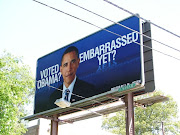WASHINGTON (AP) -- Ford Motor Co. is asking Congress for a $9 billion "stand-by line of credit" to stabilize its business, but says it doesn't expect to tap it. Unless one of Detroit's other Big Three auto companies goes bust, Ford expects to have enough money to make it through next year without government help, it said in a plan that projected the firm will break even or turn a pretax profit in 2011.
Detroit's automakers, making a second bid for $25 billion in funding, are presenting Congress with plans Tuesday to restructure their ailing companies and provide assurances that the funding will help them survive and thrive.
General Motors Corp., Ford and Chrysler LLC said they would refinance their companies' debt, cut executive pay, seek concessions from workers and find other ways of reviving their staggering companies.
The Big Three executives also are offering a series of mostly symbolic moves to burnish their images, badly tattered after they arrived in Washington D.C. last month on three separate private jets to plead for a federal lifeline for their struggling companies. All three companies offered separate plans for hearings that will be held Thursday and Friday.
That approach the auto executives took last month led Democratic congressional leaders to declare they didn't come prepared to justify their pleas and they told them to go back home and ready a new plan.
This week, the automakers are going out of their way to show deference to lawmakers and a willingness to flog themselves for past mistakes. "I think we learned a lot from that experience," Ford CEO Alan Mulally told The Associated Press in an interview.
Mulally said he'd work for $1 per year if his firm had to take any government loan money. The company's plan also says it will cancel all management employees' 2009 bonuses, scrap merit increases for its North American salaried employees next year, and sell its five corporate aircraft.
And for this week's appearances here, all three company chiefs will skip the lavish travel arrangements. Mulally is coming by car from Detroit for this week's second round of congressional hearings on government help for the Big Three. GM Chief Rick Wagoner will drive a Chevrolet Malibu hybrid sedan for the 520-mile trek from Detroit to Capitol Hill, spokesman Tony Cervone said Tuesday. And Chrysler LLC CEO Robert Nardelli won't travel by corporate jet, but a spokeswoman declined to elaborate on his travel plans, citing security reasons.
The unions were preparing to make sacrifices as well. United Auto Workers leaders summoned local union leaders from across the country to an emergency meeting Wednesday in Detroit to discuss concessions the union could make to help auto companies get government loans.
U.S. automakers are struggling to stay afloat heading into 2009 under the weight of an economic meltdown, the worst auto sales in decades and a tight credit market. General Motors, Ford and Chrysler went through nearly $18 billion in cash reserves during the last quarter, and GM and Chrysler have said they could collapse in weeks.
Meanwhile, the auto companies released new sales numbers that underlined the punishing business environment facing the Big Three. Ford said its November U.S. light vehicle sales tumbled 31 percent amid a continued slump in consumer spending and tight credit markets. Sales at Toyota, Japan's No. 1 automaker, fell 34 percent despite its extension of zero-percent financing on a dozen vehicles.
Ford's blueprint said it would invest $14 billion over the next seven years to boost its vehicles' fuel-efficiency, and improve the overall efficiency of its fleet by an average of 14 percent next year. And Ford is calling for a new partnership among automakers, parts suppliers and the government to develop new battery technologies domestically, so the U.S. doesn't have to rely on foreign batteries - as it now does on foreign oil - to power its cars.
GM will outline efforts to negotiate swapping some of the company's debt for equity stakes in the automaker, either shares or warrants for them, said two people briefed on the company's plan.
With eight separate brands, GM will also discuss efforts to shed brands but it would prefer to sell them instead of shutting down Pontiac, Saturn or Saab, said one of the people briefed on the plan. Killing off brands, like GM did with Oldsmobile in 2004, would require cash the company doesn't have, the person said. The people briefed on GM's preparations didn't want to be identified because the plan hadn't been completed.
Chrysler is expected to outline changes that would include a swap of debt in the company for equity stakes and reductions in some vehicle models, according to a person who was briefed on the plan. The person spoke on condition of anonymity because the discussions were private.
GM, according to its quarterly report filed with the Securities and Exchange Commission, owes creditors $45 billion and it must pay more than $7.5 billion early in 2010 to a UAW-administered trust fund that will take over retiree health care payments.
Ford owes more than $26 billion, with $6.3 billion due to its UAW trust fund at the end of 2009. Chrysler, a private company, does not have to open its books, but its CEO, Nardelli, has said it would be difficult for the company to make it without federal aid. All three likely are negotiating with the UAW for delays in payments to the trusts.
The companies are resisting calls for bankruptcy, arguing that no one would buy a car from an automaker that may not survive the life of the vehicle.

Custom Search
News
Tuesday, December 02, 2008
Subscribe to:
Post Comments (Atom)










No comments:
Post a Comment